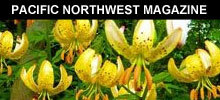Originally published September 16, 2014 at 6:47 AM | Page modified September 17, 2014 at 2:24 AM
Alibaba raises IPO price range on strong demand
Alibaba now plans to raise up to $25.03 billion in its upcoming IPO, making what was expected to be the biggest stock market debut even bigger.
![]()
Alibaba now plans to raise up to $25.03 billion in its upcoming IPO, making what was expected to be the biggest stock market debut even bigger.
The Chinese e-commerce company said it still plans to sell 368.1 million shares, but at $66 to $68 apiece, according to a regulatory filing, instead of its previously set range of $60 to $66 apiece.
Alibaba Group Holding Ltd. has emerged as a hot commodity because of its e-commerce bazaar, a shopping magnet for businesses and consumers alike as China's economy steadily grows. The company's network of sites includes Taobao, Tmall, and AliExpress, as well as Alibaba.
Most of Alibaba's 279 million active buyers visit the sites at least once a month on smartphones and other mobile devices, making the company attractive to investors as computing shifts away from laptop and desktop machines.
Investors have been salivating over the trifecta of growth that Alibaba offers: "There are very few companies that are this big, grow this fast, and are this profitable," said Wedbush analyst Gil Luria. He initiated coverage on the company with a 12-month price target of $80.
The company's revenue in its latest quarter ended June 30 surged 46 percent from last year to $2.54 billion while its earnings climbed 60 percent to nearly $1.2 billion, after subtracting a one-time gain and certain other items.
Alibaba has been meeting with potential investors over the past week, and demand spurred the increase. Alibaba is expected to be priced late Thursday and start trading Friday under the ticker 'BABA' on the NYSE.
The fundraising target eclipses the $16 billion Facebook raised in 2012, the most for a technology IPO. It also would top the all-time IPO fundraising record of $22.1 billion set by the Agricultural Bank of China Ltd. in 2010, according to the research firm Dealogic.
 Four weeks for 99 cents of unlimited digital access to The Seattle Times. Try it now!
Four weeks for 99 cents of unlimited digital access to The Seattle Times. Try it now!















